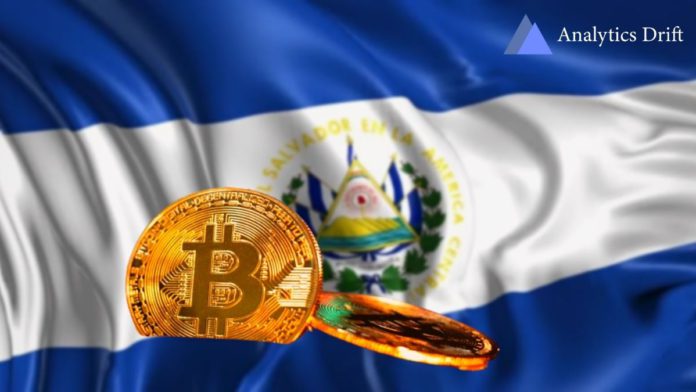On Tuesday, following the approval of President Nayib Bukele’s proposal, El Salvador made history by becoming the first country in the world to adopt bitcoin as legal tender. The move was taken in an effort to encourage “financial inclusion,” investment, and economic growth.
The nation purchased 400 bitcoins, worth more than $20 million at that moment, ahead of the launch. Following the purchase of the first batch of 200, President Nayib Bukele announced through Twitter that the nation aims to purchase “a lot more.”
It is expected that in the next 90 days, the usage of cryptocurrencies as legal money – alongside the US dollar – will become the law, and the bitcoin/dollar exchange rate will be determined by the market. Salvadorans will be allowed to pay their taxes in bitcoin, and “every economic agent” will be forced to accept bitcoin as payment unless they do not have access to the needed technology.
Meanwhile, the regional development bank CABEI is assisting El Salvador in adopting the cryptocurrency, which is a significant demonstration of solidarity, given the World Bank has rejected aid to El Salvador due to concerns about the environment and transparency.
It would be interesting to observe whether El Salvador’s embrace of Bitcoin as alternative legal money reduces the cost of remittances, which are an essential source of income for millions in the area. According to the President, bitcoin could make it easier for Salvadorans living abroad to send home remittances, which amounted to $6 billion in 2019, contributing a fifth of the country’s GDP.
However, the fact is that most Salvadorans are unhappy with the proposal, and turned to the streets to protest against it. The angry mob also stooped to burning a tire and setting off fireworks in front of the Supreme Court. Their primary concerns are about lack of knowledge about cryptocurrencies or the volatility of the cryptocurrencies which can lead to more regulations and risks for the financial institutions.
The International Monetary Fund (IMF) has said that its plans could jeopardize a planned deal with the country, where El Salvador is seeking a $1 billion loan. Some economists have warned that the country could become a haven for financial crime. There are also widespread concerns about bitcoin’s potential environmental impact, as it consumes a lot of electricity.
Read More: CoinDCX becomes India’s First Crypto Unicorn company
Amid the concerns about whether the move might complicate discussions with the IMF, lawmakers passed the two-page proposal late Tuesday night with 62 of the assembly’s 84 votes. This was possible since the President’s party and supporters have complete control of Congress. El Salvador’s government also developed a digital wallet, Chivo for its 6.4 million people, which was preloaded with $30 in Bitcoin for users who register with a Salvadoran national ID number. Chivo is a local slang term for ‘cool.’ There will be no commissions on transactions. In addition, the government is also working on the installation of 200 Chivo automatic tellers and 50 Bitcoin attention centers around the country where customers may withdraw or deposit funds. Moreover, the Finance Ministry created a $150 million fund at state-run bank Banco de Desarrollo de la República de El Salvador, Bandesal, for backing the transactions.
Unfortunately, the rollout soon turned into a series of mishaps and glitches. For instance, President Bukele complained the government-backed bitcoin app was not available on various internet platforms including Apple and Huawei.
After it was resolved, Chivo digital wallet was swarming with traffic and it had to be pulled offline for a short time and connect to more servers and increase capacity. By the afternoon, the President was retweeting videos on social media of citizens using bitcoin to pay for things like McDonald’s and Starbucks in El Salvador.
He also tweeted “The process of #Bitcoin in El Salvador has a learning curve. Every step toward the future is like this, and we will not achieve everything in a day, nor in a month. But we must break the paradigms of the past.”
Meanwhile, Bitcoin’s value plunged early Tuesday, falling from more than $52,000 per coin to $42,000 before briefly recovering nearly half of that loss — an illustration of the volatility that has many people concerned. Though some believe this dip is the direct impact of El Salvador’s Bitcoin proposal, other experts blame whales for the downward spiraling of the prices. Whales are entities that own a large enough amount of bitcoin to be able to affect the value of the currency. Ether and other big cryptocurrencies were also affected by the downturn.
El Salvador took advantage of the price drop by purchasing 150 bitcoins. “I am buying the dip. There are 150 new coins in the mix,” President of El Salvador, Nayib Bukele, sent out a tweet.
“The sale looks to be coming to a close. @IMFNews, I appreciate the dip. A million sheets of paper were saved. El Salvador currently has 550 bitcoins in its possession,” another tweet read.
For now, according to the government, the dollar will continue to be the national currency for public accounting reasons, and retailers that are technologically unable to accept the e-currency will be excluded from the law.
Despite the fact that President Bukele has a bad image, notably when he marched soldiers in war fatigues into Congress last year and threatened MPs to be summoned in seven days unless they approved a loan for new security equipment — if El Salvador’s experiment is a success, other countries may follow suit.


